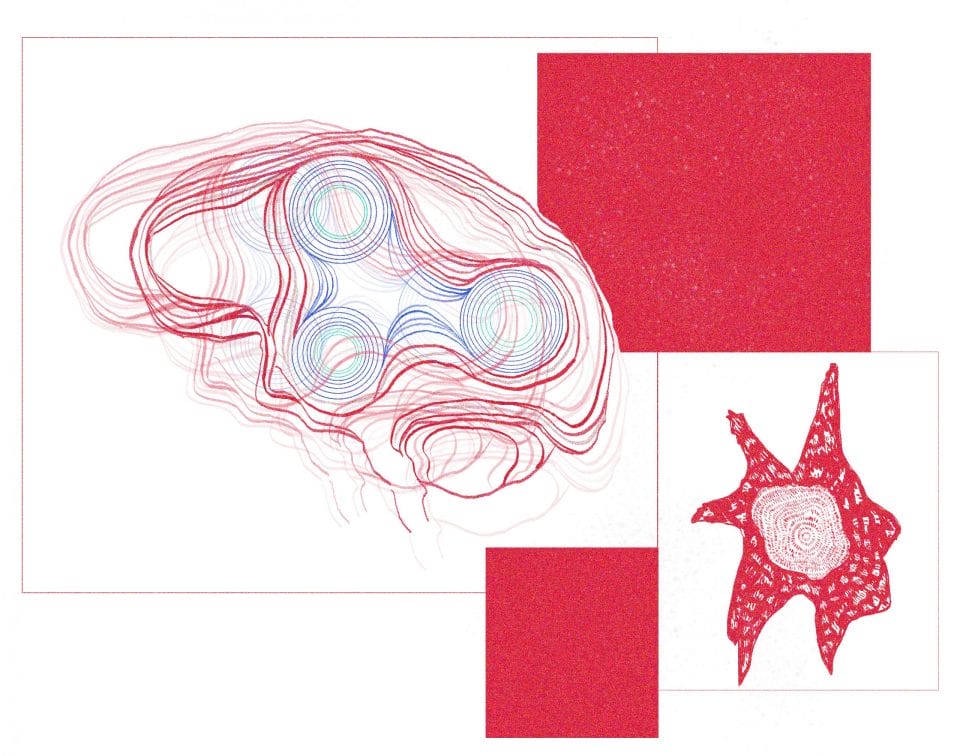 Far from being just a TikTok trend, Dr. Edwin Ong of RMDY Clinic — a medical and wellness clinic focused on preventive healthcare through holistic solutions — explains the phenomenon of episodic memories.
Far from being just a TikTok trend, Dr. Edwin Ong of RMDY Clinic — a medical and wellness clinic focused on preventive healthcare through holistic solutions — explains the phenomenon of episodic memories.
Hello Doctor Ong, how does the brain exactly store memories?
The brain is made up of a complicated network of different groups of nerve cells called neurons. They are responsible for different thoughts or perceptions.
Memories are formed when a specific group of neurons keeps getting reactivated due to persistent changes in the strength of connections between neurons. These connections are called synapses and can be made stronger or weaker depending on when and how often they have been activated in the past. Active connections get stronger, while those that aren’t used get weaker and can eventually fade entirely. This process is known as synaptic plasticity. Changing the strength of existing synapses, adding new ones, and removing old ones are crucial to the formation of memories.
Through these synapses, information flows between the cortex — the part of the brain rich in nerve cells — and the hippocampus, which is the central switching point for memories in the brain. Sleep is an important factor for memory storage. During sleep, the hippocampus replays recent events over and over in a time-compressed fashion. The information is then transferred and stored in the cortex.
Is it safe to assume that our brain stores memories that are vivid?
Yes, you are right. We can’t obviously remember everything, because how the brain works is that it plays back our experiences and prioritises important events for later retrieval and filters out the neutral, inconsequential events – thus retaining memories that will be useful for future decisions.
Weaker synapses and less activation of certain groups of neurons result in those synapses eventually fading entirely, and those memories are “deleted” by the brain. In other words, the brain filters what we experience and retains the most vivid things. This prioritisation process requires time for consolidation and is aided by sleep, as mentioned before.
I understand from what you shared that memories do not shape our personalities — as the latter is genetic — but some schools of thought believe that it creates a positive or negative sense of self. what do you think of it?
Our personalities are mostly determined by genes, and also by environmental factors: nature and nurture.
Memories do not shape our personalities but play an indirect role in doing so. Memories of your personal life history are known as autobiographical memory. It has a self-representative function by allowing us to evaluate our past experiences, which leads to self-insight and self-growth. Essentially it is how we react to these vivid experiences over time that helps with shaping our personalities.
If memories were to be responsible for shaping our personalities, then what would happen if we were to lose our memory? Would our personality and identity also fade away? The answer, thankfully, is not entirely. Studies on patients with Alzheimer’s disease have shown that substantial memory deficits do not affect the perception of moral traits like honesty, compassion, decency, and integrity, which are all preserved.
What are some genetic personality traits we are predisposed to then? Are they difficult or impossible to alter?
The five main personality traits are agreeableness, conscientiousness, extroversion, neuroticism and openness. When it comes to some of these broad, dominant traits, change tends to be difficult. When it does occur, these changes tend to be very subtle.
I was reading an article one day about the concept of digital memories and how they ruin our real ones. It can be quite difficult to separate our actual experiences from the videos and photographs of them. Would you agree?
Yes. In the age of smartphones and technological devices today, it is indeed difficult to separate digital memories from real ones. Every time we recall a memory, we may accidentally alter it or diminish its accuracy. We may end up reconstructing the reality of these past experiences without being aware that we’re doing it. Digital memories are useful in helping to enhance visual memories of our experiences.
However, the trade-off is that when we are so engrossed in using our smart devices, we are less likely to pay attention to other stimuli. When you look back on Instagram photos taken from an expensive dinner you had years ago, you may have a clear recollection that the dishes looked pretty, but do you still remember the texture, smell and taste of the food?
In a study reported in the Journal of Experimental Social Psychology, a few hundred participants were asked to take a self-guided tour through the Stanford Memorial Church in the United States. They were asked to take note of details of the interior decor and artefacts of the church. Some of these participants had cameras and were instructed to take photos while others went in empty-handed. A week after the tour, the participants were given a surprise quiz, with questions about details they should have learned on the tour. The group without a camera scored higher than the group that used cameras.
The use of technology is not only likely to distract us from the full experience of an event, it also causes over-reliance. When we know that our devices can do the job for us, for example, take a picture or save a phone number, we don’t have to put effort to remember it ourselves – this is known as cognitive offloading.
Regarding long-term memory, can you explain what explicit and implicit memories are?
Long-term memory (LTM) refers to the storage of information over an extended period, often for years. There are two types of LTM: explicit (conscious) and implicit (unconscious) memory.
Explicit memory can be further divided into episodic and semantic memory. Episodic memory refers to specific events we have experienced in our lives, for example your 18th birthday party. Semantic memory is responsible for storing information about the world, for example knowing that the Eiffel Tower is in France.
Implicit memory is unconscious (i.e. automatic) and includes procedural memory, which involves memories of body movement and how to use objects in the environment. For example, tying shoelaces or brushing your teeth.
For episodic memories, how does the brain decide to retain them?
What is understood in research so far is that the hippocampus is responsible for rapid memory formation, but has limited capacity. Information that should be retained is transferred and stored in the cortex, where it is longer-lasting but slower-acting. There are emotional triggers. The emotional aspects of memories are stored in another region of the brain called the amygdala. So if there is a particular event that activates the hippocampus, this, in turn, activates all the linked brain components, bringing back the full episodic memory related to this event.
For example, when you hear a familiar old song playing on the radio, you might be triggered to recall the same song being played during your 18th birthday party.
What about semantic memories? Would it be correct to theorise that one has to be genuinely interested in such a fact for the brain to memorise said fact?
Semantic memory is a subset of long-term memory that allows us to know about the world around us. Children use semantic memory when they are learning colours, numbers, shapes, and objects. Teens and adults use semantic memory in educational courses and on the job.
Information is gathered through the senses and relayed to short-term memory, where through repetition and rehearsal, it is committed to semantic memory. The amount of repetition and rehearsal required varies from one person to another. So I would say that while one does not have to be genuinely interested in the subject for the brain to memorise it, it would definitely help.
Regarding implicit memories, it seems interesting because there is the potential to develop bad habits if one keeps performing the action. How many times does one have to do an action before the brain “stores” this information?
It is simply understood that cognitive tasks need to be rehearsed over and over again over time before associations can be formed to form implicit memories. The brain eventually associates the procedure with a particular context, which then causes the procedure to become automatic. However, there are no quantifiable amount of times that a person needs to act before we start to form these procedural memories.
Which of the issues that RMDY Clinic treats can stem from such memories?
RMDY believes in a holistic approach whereby we want to ensure that what you can control is already controlled – and this covers prevention (via regular health checks), lifestyle (getting enough sleep, eating well, managing stress), and exercise (proper exercise that is catered to your age group and abilities). After what you can control is already addressed, then we look at alternative forms of treatment such as supplements and medication.
Illustration Lance Aeron
Once you’re done with this story about episodic memories, click here to catch up with our April 2022 issue!








